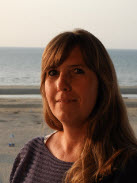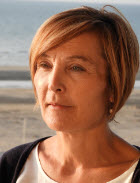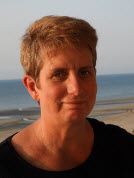1. What is DCD?
DCD is an abbreviation and stands for Developmental Coordination Disorder. It means you have problems learning things that have to do with movement.
Children with DCD have a hard time learning new tasks and their movements are not so nice and smooth. Children with DCD are more likely to fall, trip or bump into something. They are, as it were, 'clumsy'.
Very important to know is that DCD has nothing to do with intelligence. DCD doesn't mean you're stupid at all.
What are typical things that can be difficult?
- Drawing, coloring, cutting… does not work out so well
- You may find it difficult to make your own sandwiches and put them in your lunch box, cut your meat and eat neatly with a knife and fork
- Dressing and undressing takes a long time, happens a bit sloppy
- Jumping, skipping, running, cycling, swimming… does not go so smoothly or it takes a long time to master this
- Ball games are not that easy
- Balance, e.g. standing on one leg to take off your socks does not work, usually you sit on the floor
- Gymnastics at school is not easy, just think of doing a roll or handstand
- Learning how to write requires a lot of effort, once you can write, however, it remains difficult to write quickly and legibly.
- You often get the comment that you are slow
- You easily spill at the table, while eating or when pouring milk into the cup,
What problems do you still see with DCD?
As you have already read above, DCD mainly has to do with problems with movements or actions.
However, other issues are also common when you have DCD. For example, you may have more trouble concentrating for a long time or keeping your attention on a task. You should know that it requires a lot more effort and concentration for you.
For example: to make an exercise in which you have to write a lot. You need to think a lot more about everything. It is therefore very logical that at the end of the day you face troubles concentrating or feel very tired.
These movement problems also make it more difficult to join a sports club or youth movement. Maybe you have already tried this and after a while you notice that you are often chosen last or not allowed to participate in games or in a competition…
Some children with DCD have a very difficult time feeling good in a sports club or youth movement, but this is certainly not the case for everyone!
It is also important to know that – if you have DCD – there is also a reasonable chance that you have another problem, such as ADHD, a learning disability (reading, spelling or math disorder) or ASD (autism spectrum disorder).
Are there still children with DCD?
Research has shown that DCD occurs in 5 to 6% of school-aged children. This actually means that you can expect that there will be a child with DCD in almost every class. DCD is therefore common, but not so well known.
Source: https://dcd.ugent.be/kind/




17 OKTOBER 2021
MARATHON PARIS
The 2021 Paris Marathon has been moved from spring to autumn and is now scheduled for October 17, 2021.
Each year, some 65,000 runners take part in the classic 42.195 kilometer distance in Paris, starting on the Champs-Elysées.
The Schneider Electric Marathon de Paris ranks as one of the five most important marathons in the world, along with those in New York, London, Berlin and Chicago.
The Paris course is loved by runners and spectators alike.
About 40% of the participants come from abroad to Paris especially for the marathon.
The organization welcomes approximately 145 nationalities each year.
The route through the City of Light offers an unforgettable backdrop with countless animations along the way.
4. Marathon of Paris
2. INITIATIVE
William (8, center picture), was diagnosed with DCD at age 5.
William, for example, was unable to put on his jacket independently and close the buttons/zipper. Drawing or coloring was another challenge...first indications...But as a parent as well as a teacher you are often powerless.
We were lucky enough to get in touch with Severine Vande Voorde (www.centrumdiabolo.be), who referred us to Barbara de Mey in Heusden (B). Thanks to Barbara and her team, William is well supervised and he is making serious steps forward!
His determination and perseverance (possibly positive side to DCD) helps him moving forward. Ine Rabaeye (logopedist) also provides speech therapy.
However, it happens all too often that people are left behind and their child does not find the right way...
This is why I wanted to do some in return...
Frederik Maddens
47
Married to Ann Maelfait
Father of Henri (12) and William (8)
Independent counselor
Director at Quincalux
Hobby: travelling, running, golf, dining
Underwent surgery on my back (hernia) at the age of 34
Coach: Dorine Brusselmans, ENFORMA
Dorine guides me in stretching exercices,
sets up training shedules and advises
what to eat and drink before,
during and after the runs.
3. EXPERTS IN DCD: BARBARA DE MEY AND THE UNIVERSITY OF GHENT
Barbara De Mey
Barbara De Mey has been working as a pediatric physiotherapist in her independent practice for more than 25 years.
In addition to this practice, which is now multidisciplinary, she also teaches as a practice assistant at the University of Ghent, training physiotherapy department of pediatric rehabilitation.
Together with Prof. Van Waelvelde and colleague Griet Dewitte, she wrote the books 'Children with developmental coordination disorder', 'I can do it!' and the 'SOS-2VL'.
In a permanent strive to help and support children, the urge grew to start up tailor-made holidays for children with mild motor problems. These 'Fielgoed' youth camps started in 2010.
barbara.demey@ugent.be
Griet Dewitte
Griet Dewitte has been working as a pediatric physiotherapist for more than 30 years. She gained experience in the rehabilitation sector, special education and in her own private practice.
She currently works at the Center for Developmental Disorders, Reference Center Autism and Center for Visual Rehabilitation and Low Vision of UZ Gent. In addition, she is a practice assistant at the Rehabilitation Sciences and Physiotherapy training.
She is (co)-author of several publications on DCD and Psychomotor Therapy. She also coordinates the Postgraduate Diploma in 'Psychomotor Therapy in Children' at Ghent University.
grietje.dewitte@ugent.be
Hilde Van Waelvelde
Prof. dr. dr. Hilde Van Waelvelde worked for 12 years as a physiotherapist in Special Primary Education.
In 1996 she started teaching at the University of Applied Sciences in Kinesitherapy.
In 2004 she obtained her doctorate with the thesis “Developmental Coordination Disorder. Underlying Mechanisms”.
She is currently a senior lecturer at Ghent University where she continues to teach pediatric physiotherapy and research on DCD and other mild neuro-motor disorders. She is (co-) author of several publications on DCD (publications) .
hilde.vanwaelvelde@ugent.be


